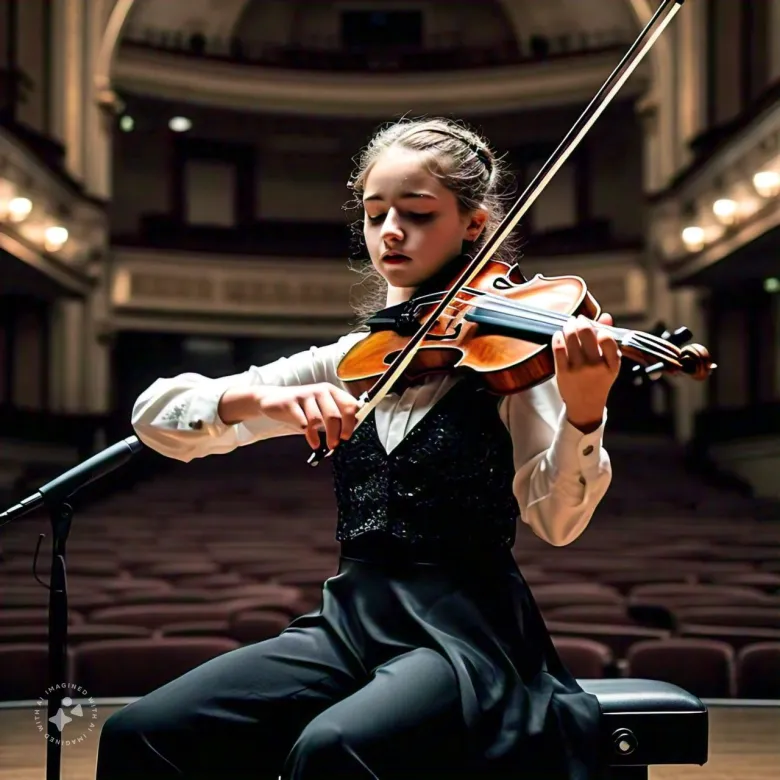Lena Williams, a 16-year-old violin prodigy, stood alone in the empty concert hall, the sound of her breath the only thing that filled the space. The stage lights were dimmed, but the memory of her last performance—the last time she’d played for her mother—was as bright as the flash of cameras that had captured her standing ovation. It had been the night her world shattered.
Her mother, always her greatest supporter, had sat in the front row, smiling proudly. But when Lena had stepped off the stage, she learned her mother had collapsed backstage, taken by a sudden heart attack. The world went black, her hands no longer steady enough to hold the bow.
In the weeks that followed, Lena’s life became a blur. The once-thriving rhythm of her music, the melodies she had once lived for, now felt like a heavy weight. Each note she tried to play felt hollow, like the strings of her violin had become untuned to her heart. Her grief was a constant ache, a wound that refused to heal. Music, her once-favorite language, now sounded like an alien tongue.
Her teacher, Mr. Duncan, noticed the change in Lena. He suggested something unconventional: “Play for the silence,” he said. “Let the music come from the quiet spaces in your heart, not the noise around you.” At first, she resented the suggestion. How could she play without the passion she once had? But Mr. Duncan was insistent, and he introduced her to a community of musicians who had faced their own losses, their own battles with silence.
One of them was Ethan, a young cellist whose hands had been burned in an accident, leaving his fingers stiff and uncoordinated. But his love for music hadn't faltered. Another was Mia, a violinist whose brother had passed away, leaving her broken but determined to find meaning through sound. Together, they formed a group, Echoes of Tomorrow—a collective of musicians who understood the depths of pain, but also the potential of music to heal.
The first practice was awkward, filled with moments of hesitation and uncertainty. But over time, something began to shift. Lena, once afraid of her own silence, began to allow her grief to transform into the music she thought she'd lost. She started composing again—fragile pieces that expressed sorrow but also the faintest hint of hope.
One evening, they performed at a local shelter, playing not for applause but for those who needed to feel something beyond their own struggles. As they played, Lena felt something stir deep within her, a connection not just to her music, but to the people listening. The music wasn’t perfect. It wasn’t pristine. But it was real, raw, and it spoke in a language that no words could describe.
Their final performance together, a piece Lena had composed titled "Resonance," was a quiet celebration of all they had become. The audience, silent and still, seemed to hold their breath as the final note hung in the air. When it ended, Lena felt a peace she hadn’t known in years.
The following year, Echoes of Tomorrow continued to perform at hospitals, community centers, and schools, each performance a reminder that even through pain, something beautiful could emerge. Lena’s journey had no clear end, no neat conclusion. But with each note she played, she understood that music wasn’t about perfection—it was about feeling, about connecting.
Years later, Lena stood on a new stage, this time not as a soloist but as the leader of a new generation of musicians. She smiled at her reflection in the backstage mirror. The girl who had once stood frozen in silence had found her voice again, and it was stronger than ever.
As she stepped onto the stage, ready to perform once more, Lena knew the music would never stop. It would carry her through the darkness and lead her into the light. Her journey had taught her that music, like love, could never truly be lost. It only changed, evolved, and resonated in new ways—forever echoing the promise of tomorrow.





